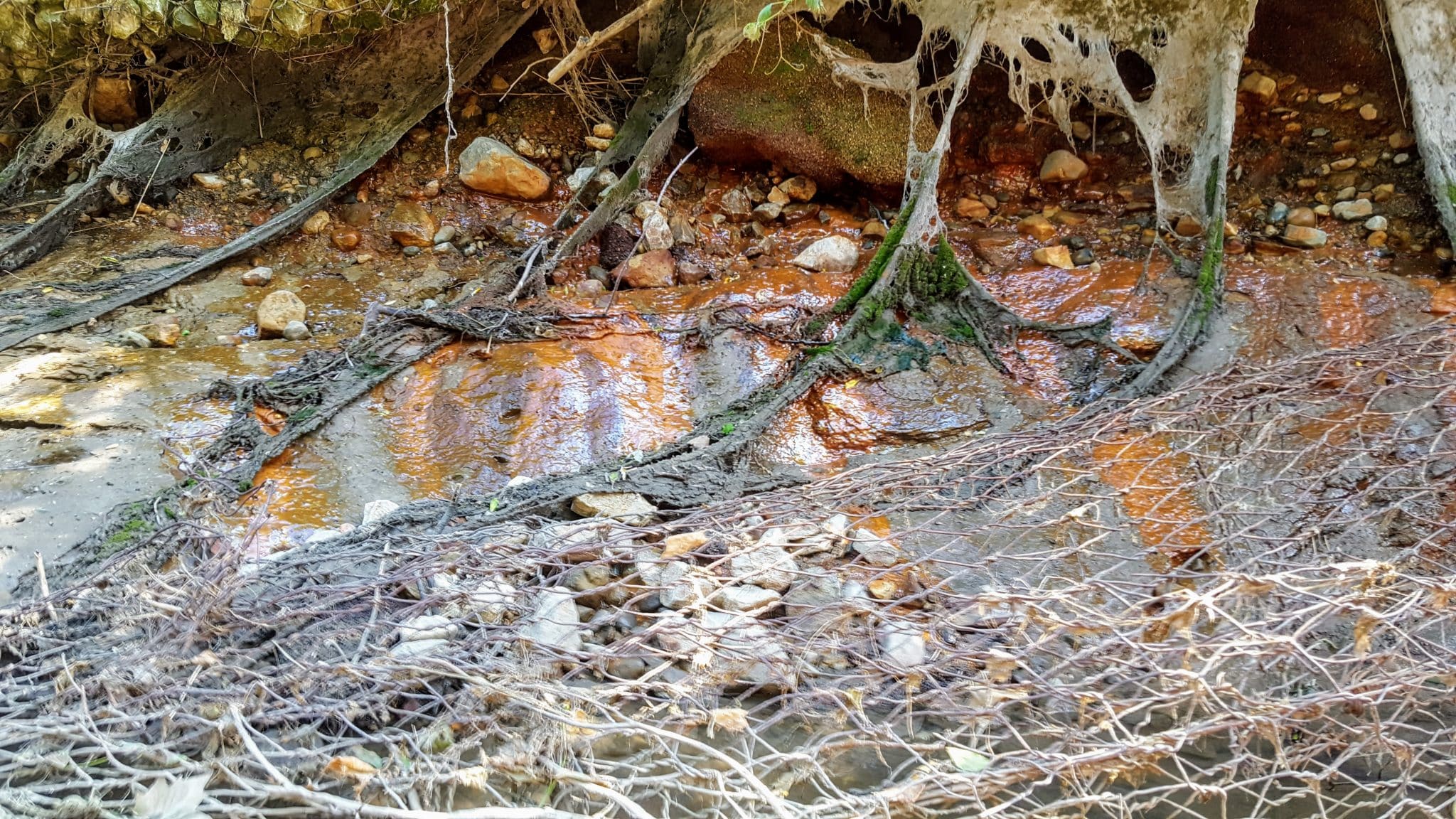FOR IMMEDIATE RELEASE

Federal Lawsuit Filed to Force Dynegy to Clean Up Toxic Pollution of Vermilion River
Recent Video Documents Continued Coal Ash Contamination of Illinois’ Only National Scenic River
Contact: Jenny Cassel, Earthjustice, jcassel@earthjustice.org or 215.717.4525
Andrew Rehn, Prairie Rivers Network, arehn@prairierivers.org or 217.344.2371 x 208
May 30, 2018 (Urbana, Illinois) — Prairie Rivers Network, represented by Earthjustice, today filed a federal lawsuit in the U.S. District Court for the Central District of Illinois to force Dynegy to clean up toxic coal ash dumps that are leaching harmful pollution into the Middle Fork of the Vermilion River, Illinois’ only National Scenic River. Newly-released video documents the pollution at issue in the lawsuit, which argues that Dynegy is violating the Clean Water Act. The pollution has tainted the river with visible orange, purple, and rust-colored toxic residue.
“Dynegy left a toxic mess on the banks of one of Illinois’ most beautiful rivers, and has done nothing to stop the dangerous, illegal pollution from fouling waters enjoyed by countless families who kayak, tube, canoe, and even swim in the river. Dynegy has left us no choice but to sue,” said Earthjustice attorney Jenny Cassel, who represents Prairie Rivers Network.
The pollution is leaching from coal ash generated at Dynegy’s now retired coal-fired power plant, the Vermilion Power Station. For decades, the ash left over from burning coal at the plant was dumped irresponsibly into unlined ponds that together run approximately a half-mile along the river. Coal ash contains a slew of dangerous pollutants that are linked to cancer, heart disease, and strokes, as well as lifelong brain damage for children. Sampling from the river found a “toxic soup” including arsenic, barium, boron, chromium, iron, lead, manganese, molybdenum, nickel, and sulfate. Concentrations of boron and sulfate – primary indicators of coal ash contamination – were repeatedly found in groundwater at the site above levels deemed safe by Illinois and U.S. EPA.
“We have a rare jewel in our midst. My brothers and I learned how to swim in that river and spent countless hours exploring it. Over the years, my wife and I have introduced our children, grandchildren, and extended family to the river to enjoy the beauty, peace, and excitement of being outdoors. We must work together to see that this coal ash problem is solved safely,” said local resident Mike Camp from nearby Collison, who grew up along the river and in sixty-four years has never lived more than two miles away from it.
American Rivers recently named the Middle Fork of the Vermilion River one of the ten most endangered rivers in the United States due to the coal ash contamination. The Vermilion County Board has twice unanimously passed resolutions asking Dynegy to clean up the mess.
The river and its banks are popular for kayaking, other boating, tubing and hiking, with thousands of visitors each year. The Middle Fork runs through Kickapoo State Park, which gets over one million visitors each year.
“As you travel along the river, one minute you are enjoying spectacular natural beauty and the next you’re looking at unsightly chemicals leaching into the water. It’s jarring. It’s bad for the local community and the wildlife—including several endangered species—associated with the river. Dynegy is jeopardizing the local jobs and the economy that depend on visitors who value the river for recreation. No one wants to swim or boat in toxic soup. Dynegy should use some of the money they made when they ran the plant to clean it up. They’re the ones who chose not to safely dispose of the coal ash,” said Rob Kanter, a naturalist and writer who serves on the Board of Prairie Rivers Network.
Meanwhile, Scott Pruitt is proposing to gut the protections for coal ash pollution nationwide, even as evidence mounts that coal ash dumps such as those at the closed Vermilion power plant are leaching dangerous chemicals into rivers, lakes, and groundwater. Even absent strong federal protections for legacy coal ash sites, however, Dynegy still must comply with environmental laws such as the Clean Water Act.
According to today’s lawsuit filed by Prairie Rivers Network, Dynegy has been discharging without a proper permit and in violation of Illinois environmental and health standards for years. Prairie Rivers Network will ask the court to order Dynegy to “take all actions necessary” to stop the illegal pollution that is being discharged to the Middle Fork, and to pay penalties to the United States Treasury of up to $53,484 per day for each day over the last five years that Dynegy has violated the Clean Water Act.
The Middle Fork and its surrounding area host twenty threatened or endangered species, fifty-seven types of fish, forty-six different mammal species, and two hundred seventy different bird species. The river is home to state-endangered Blue Breast Darter and several species of rare, threatened, and endangered mussels. The American bald eagle, river otter, and wild turkey have returned to the area, sharing their habitat with mink, turtles, Great Blue Heron and other species.
###
Recently-released photos and video can be accessed here.
Prairie Rivers Network is Illinois’ advocate for clean water and healthy rivers and is the Illinois affiliate of the National Wildlife Federation. Prairie Rivers Network advocates for cultural values, policies and practices that sustain the ecological health and biological diversity of Illinois’ water resources and aquatic ecosystems. It is a member-supported, nonprofit organization that champions clean, healthy rivers and lakes and safe drinking water to benefit the people and wildlife of Illinois. Prairie Rivers Network explains the threats Dynegy’s coal ash pits pose to the Middle Fork on its website.
Earthjustice is the nation’s premier nonprofit environmental law organization, wields the power of law and the strength of partnership to protect people’s health, to preserve magnificent places and wildlife, to advance clean energy, and to combat climate change.







